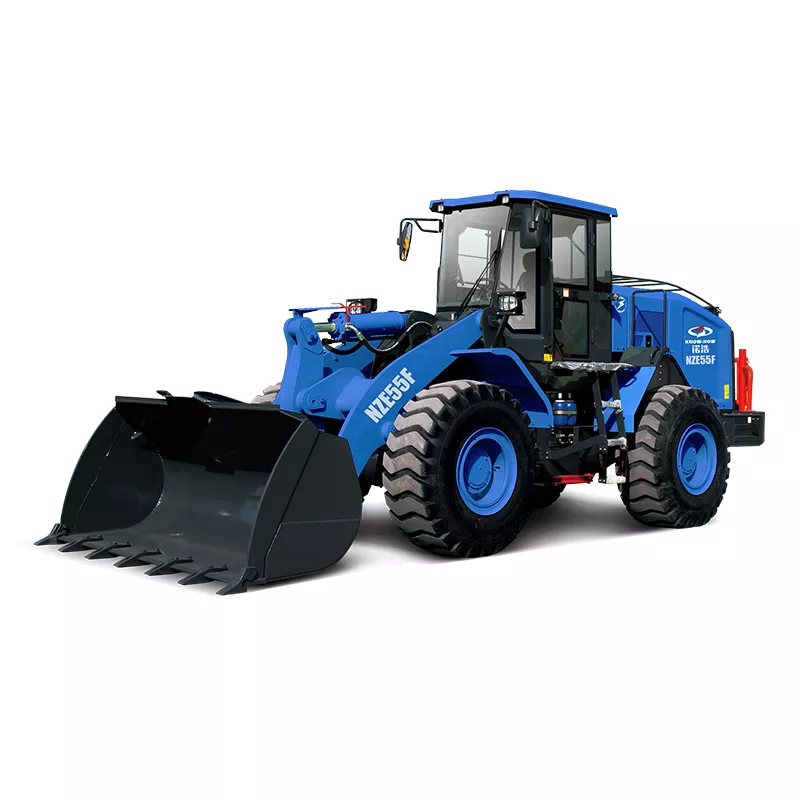What are the environmental benefits of using electric wheel loaders?
In an ever-evolving world, where environmental consciousness is becoming increasingly important, the industrial and construction sectors are also stepping up to reduce their carbon footprint. One remarkable advancement in this direction is the adoption of electric wheel loaders. These versatile machines, while primarily designed for heavy lifting and construction tasks, have been instrumental in promoting sustainability and contributing to a greener future. In this article, we'll delve into the significant environmental benefits of using electric wheel loaders and how they play a pivotal role in addressing the global concerns surrounding pollution and climate change.
1. Zero Emissions
One of the most outstanding advantages of electric wheel loaders is their contribution to reducing greenhouse gas emissions. Traditional diesel-powered equipment has long been a primary source of air pollution on construction sites. In contrast, electric wheel loaders are designed to operate with zero emissions. They are powered by electricity, which means they do not produce any exhaust fumes or emissions harmful to the environment. This makes them an excellent choice for projects in environmentally sensitive areas or urban locations, where air quality is a significant concern.
2. Energy Efficiency
Electric loaders are not only eco-friendly in terms of emissions but also remarkably energy-efficient. These machines are equipped with advanced technology, including regenerative braking systems and smart energy management. This technology allows them to recover and store energy during braking, which can then be used for propulsion. As a result, electric wheel loaders consume less energy compared to their diesel counterparts, thus reducing the overall demand on power sources and contributing to a more sustainable future.
3. Noise Reduction
Construction sites are notorious for their noise pollution, which can be a source of annoyance and disturbance to both workers and nearby residents. Electric wheel loaders offer a solution to this problem by operating quietly. With their electric motors, these machines produce significantly less noise than diesel-powered alternatives. This reduced noise level not only enhances the working environment but also minimizes the impact on local communities, promoting harmony and reducing noise-related stress factors.
4. Reduced Maintenance
Traditional wheel loaders, especially diesel ones, require regular maintenance and are prone to wear and tear due to the complex nature of their internal combustion engines. In contrast, electric wheel loaders have fewer moving parts, which means reduced maintenance requirements. The absence of engine oil changes, reduced cooling system maintenance, and fewer hydraulic components all lead to less downtime and maintenance costs. This not only saves money but also minimizes the environmental impact associated with maintenance activities.
5. Lower Operating Costs
The use of electric wheel loaders can significantly reduce operating costs. While the initial purchase cost of an electric wheel loader may be slightly higher than a diesel-powered one, the long-term cost savings are substantial. Lower energy costs, reduced maintenance expenses, and potential tax incentives or rebates for using eco-friendly equipment all contribute to more budget-friendly operations, which can benefit both businesses and the environment.
6. Sustainable Future
In a world where climate change and environmental sustainability are paramount concerns, the adoption of electric wheel loaders represents a significant step towards a greener and more sustainable future. Their zero-emission operation, energy efficiency, noise reduction, and lower operating costs make them a wise choice for businesses looking to minimize their environmental impact and contribute to global efforts to combat climate change.
Electric wheel loaders are not just powerful machines for construction and industrial applications; they are also environmental champions. Their ability to reduce emissions, operate efficiently, and minimize noise pollution, along with lower maintenance and operating costs, make them a compelling choice for businesses and construction projects aiming to leave a positive impact on the environment. As the world strives for a more sustainable future, wheel loaders are leading the way in the construction industry, setting a new standard for eco-friendly equipment.



